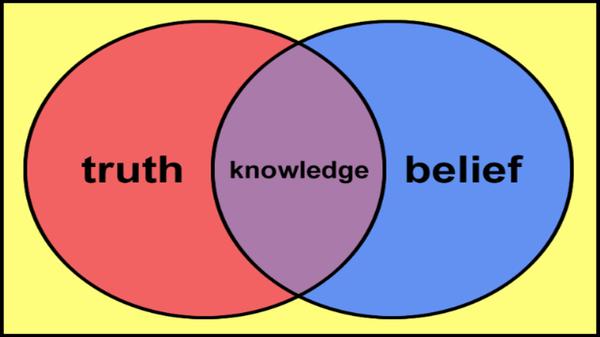Introduction
Inthe1970s,WilliamPerryfirstconductedagroundbreakingstudyontheepistemologicalbeliefsofcollegestudentsthroughquestionnairesandinterviews.Inthefollowingdecades,manyscholarsFromdifferentanglesandusingdifferentmethods,alargenumberofstudieshavebeenconductedontheindividual'srelevantknowledgeandknowledgeacquiredbeliefs,whichwecollectivelyrefertoasthestudyofpersonalepistemology[3].Althoughdifferentresearchershavedifferentunderstandingsofpersonalepistemologyandusedifferentterminology,thecoreoftheirresearchandemphasisisthesame,thatis,theindividual'sviewofknowledge,thatis,theindividual'sholdingofknowledgeandknowledgeacquisitionBeliefsmainlyincludebeliefsaboutknowledgestructureandnatureofknowledge,beliefsaboutknowledgesourcesandknowledgejudgments,andtheroleofthesebeliefsinregulatingandinfluencingtheprocessofindividualknowledgeconstructionandknowledgeacquisition.
Model
Throughoutthehistoryofpersonalepistemologyresearch,averyimportantapproachinthefieldofresearchistoexplorethedevelopmentprocessofpersonalepistemologyfromtheperspectiveofdevelopment[3,4].Thesestudiesarerootedintraditionalcognitivedevelopmentstudies,aimingtorevealthestagesandsequenceofthedevelopmentofpersonalepistemology,andproposecorrespondingdevelopmentmodels.
1.Schemeofintellectualandethnicaldevelopment(Schemeofintellectualandethnicaldevelopment)
Undernormalcircumstances,theindividual’sviewofknowledgeisfirstofalldualism,anditscharacteristicsareHoldsadualistic,absolute,andeither-orconceptoftheworld.Thenitdevelopedintopluralism,andbegantorecognizethediversityanduncertaintyofopinions,thinkingthateveryonehastheirowncorrectopinions.Frompluralismtorelativism,itscognitivecharacteristicistoadmitthatsomeviewpointsarebetterthanothers.Thehigheststageisthecontractstageofrelativism.Individualshavetheirownpositionsandopinionswhenanalyzingthings.Theycannotonlyadheretotheestablishedpositions,butalsomakeadjustmentsflexibly.Therearenotmanystudentswhocanreachthisstage.

2.Woman'swayofknowing(Woman'swayofknowing)
Attheendofthe1970s,feministpsychologyemergedintheWest.Thedisplayedtraditionalandrocentricvalueswerecriticized.Inthiscontext,BelenkyandothersquestionedWilliamPerry'stheorybecausehisconclusionsweredrawnfrommalecollegestudents[3].Atthesametime,onthebasisofPerry'sresearch,Belenkyetal.used135womenfromvariousfieldsassubjects,usedsemi-structuredinterviewresearchmethodstoconductresearch,andproposedadevelopmentschemaforwomen'sknowledgeacquisitionmethods.Theybelievethatwomen’sknowledgeacquisitionmethodsarebasedonthesourceofknowledgeandtruthandareintertwinedwithself-concepts.ThedevelopmentprocessdoesnotmatchPerry’sschema,butincludesfivecognitivepositions.TheyTheyare:Silence,inwhichwomenarepassiveandvoicelessbeings,whoarecompletelyobedienttoexternalauthority.Receivedknowledge(receivedknowledge):Theindividualholdsaneither-or-thought,andbelievesthatthereisonlyonecorrectanswertoeachquestion.Thesubjectiveknowledgeposition(subjectiveknowledge)believesthatthesourceoftruthcomesfromtheself,knowledgeissubjective,andtheacquisitionofsubjectiveknowledgeisbasedonintuitivethinking.Proceduralknowledge,womeninthispositionbelievethattheacquisitionofknowledgedoesnotrelyonintuition,butrequiresobjectiveandsystematicthinking.Theconstructedknowledgefield(constructedknowledge)believesthatknowledgeandtrutharecontextual,andindividualsareparticipantsintheconstructionofknowledge,andtheycanalsoconstructandreconstructknowledge.
3.Epistemologicalreflectionmodel(Epistemologicalreflectionmodel)
BaxterMagoldaisinterestedinpersonalepistemologicalissuesrelatedtogender.Heselectedthesamenumberofmaleandfemalesubjects,conductedafive-yearlongitudinalstudyintheformofopeninterviews,andproposedanepistemologicalreflectionmodel[15].Thismodelincludesfourcompletelydifferentassumptions.Theabsoluteknowerregardsknowledgeasdefiniteandbelievesthattheauthorityknowsalltheanswers.Thetransitionalknowerfindsthattheauthoritycannotknowtheanswerstoallquestionsandbeginstoaccepttheuncertaintyofknowledge.Theindependentknowerbegantoquestionauthorityastheonlysourceofknowledge,believingthattheopinionshehadwereequallyvalid.Thecontextualknowerconstructsapersonalpointofviewbyjudgingthecontextualevidence,believingthatexpertsshouldalsobeevaluated,knowledgeisdeveloped,andknowledgeisconstantlybeingreconstructedbasedonnewevidenceandnewsituations.Situationalcognizantsarerareinresearch,andonlyafewpeoplecanreachthislevel.Althoughtheoveralldevelopmentpatternsofmenandwomenaresimilar,BaxterMagoldabelievesthatgender-relatedknowledgeacquisitionmethodsmayappearintheearlystagesofdevelopmentandthenmergewiththecognitivecontext.Menaremorelikelytoadoptthemethodofacquiringknowledgeofindividualism(inpidualism),whilewomenaremorelikelytoadoptthemethodofacquiringknowledgeofindividualism(inter-inpidualism).
4.Reflectivejudgmentmodel
BasedonWilliamPerry’sresearchandDewey’sresearchonreflectivethinking,KingandKitchener’sassumptionsaboutepistemologyTheinfluenceofreasoningwasstudied.Theyconductedlong-terminterviewswithsubjectsfor15yearsfromhighschooltoadulthood,focusingontheunderstandingoftheprocessofknowledgeacquisitionwhenpeoplemakejudgmentsontheproblemsofpoorlystructuredareas,andproposedanepistemologicalreflectivejudgmentmodel[16].Themodelincludes7differentstages(stages)anddividedintothreelevels:pre-reflectivethinking(pre-reflectivethinking)includesstages1,2and3,thatknowledgeissimple,definite,absolute,allproblemsThereisacorrectanswer,andthecorrectanswerisoftenknownonlybyauthority.Quasi-reflectivethinking(quasi-reflectivethinking),includingstages4and5,ischaracterizedbybeginningtorecognizetheuncertaintyoftheprocessofacquiringknowledgeandbelievingthateveryonehastheirownpointofview.Knowledgeisrelativeandcontextual,anditssourceistheinternalconstructionoftheindividualratherthanexternalauthority.Evidenceisregardedasakeypartoftheknowledgeacquisitionprocess,anditisbeginningtobeabletolinkevidencewithcognitivereasoning.Reflectivethinking,includingstages6and7,believesthatknowledgeisactivelyconstructedandmustbeunderstoodinthecontext,andjudgmentsneedtobere-evaluated.Reflectivethinkerscanflexiblyuseevidenceandreasoningtosupporttheirjudgments,andareopentore-evaluatingandjudgingtheirownconclusions.
5.Argumentativereasoningmodel
WhileKuhnstudiesindividuals’argumentationandreasoningonill-structuredproblemsindailylife,italsopaysattentiontoindividuals’holdingsofknowledgeacquisitionSomebeliefs.Basedonthreecommunityissuesthateveryoneisveryconcernedabout,sheinterviewedsubjectsatfouragesandputforwardthreetypesofepistemologicalbeliefs:absolutist,whoregardsknowledgeasdefinite,Absolutely,emphasizingfactsandexpertsarethebasisofunderstanding,andhaveahighdegreeofcertaintyabouttheirbeliefs.Multiplistsdenythecertaintyofexperts,andstarttohavedoubtsaboutexpertsingeneral.Theybelievethatovertime,theyshouldnotagreewithexperts.Thecharacteristicofthepluralistpositionisradicalsubjectivism.Whilereducingthevalueofexperts,itemphasizesthatemotionsandbeliefsaremoreimportantthanfacts.Inthisposition,beliefsareownedbyindividuals,andeveryindividualisdifferent,andallopinionsaredifferent.Theyareallequallylegitimate,andtheiropinionsmaybeasreasonableasthoseofexperts.Theevaluativestagedeniesthecertaintyofknowledge.Theyrecognizeexpertsandbelievethattheiropinionsarenotascorrectasthoseofexperts.Moreimportantly,theybelievethattheirviewsarecomparableandappraised.Theyrecognizethattruthandconflictingconceptscanbeexchanged,andtruthcanbemodified.
